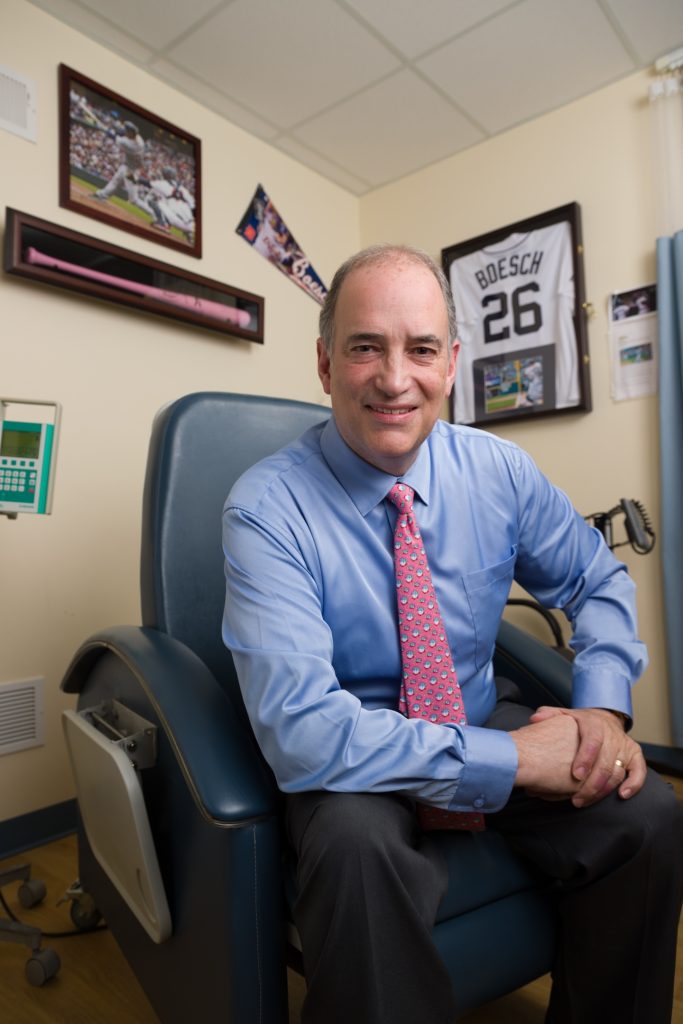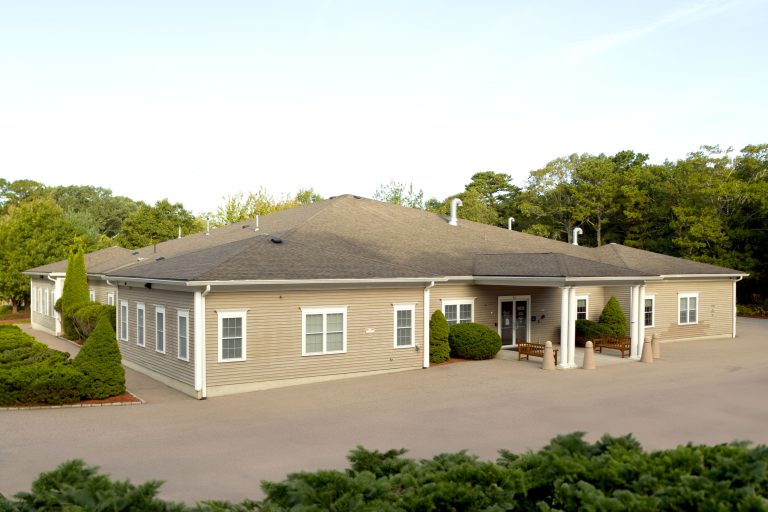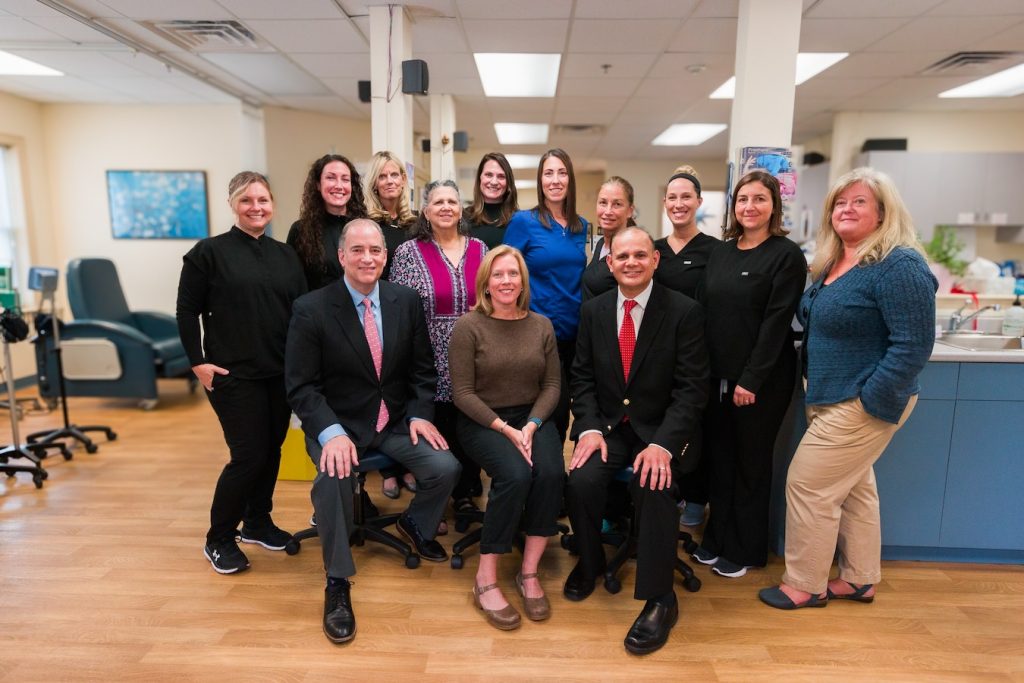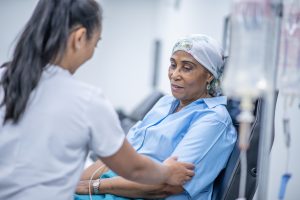
Increased Survival in Colorectal Cancer
Increased Survival in Colorectal Cancer: RCCA Oncologists Tell How Doctors &Patients Are Driving the Trend The colorectal cancer death rate has dropped by more than 30%
HIPAA Alert: Potential Data Breach Learn More
Questions on Oncology, Hematology and/or Infusion Clinical Services due to COVID-19 Crisis – CALL 833-698-1623
Important Information for Our Patients Regarding the Coronavirus.
RCCA Providing Area Cancer Patients with Access to Care During Coronavirus Outbreak
RCCA Offering Patients Virtual Visits During Coronavirus Pandemic
Cape Cod long has been a destination for the hopeful. From Pilgrims crossing the Atlantic for a new start to vacationers crawling along Routes 6 or 28 for a few days of summertime surf and sun, the peninsula for centuries has attracted those looking for something better for themselves and their families.
The same motivation drew Victor Aviles, MD, and his wife, Ann M. DeWeer-Aviles, to the Cape in 2001. Having found what they sought in a community, they have enriched Cape Cod’s legacy, offering hope to cancer patients, parents and children, young people facing a devastating genetic disease, and even aspiring baseball players.
“This is an ideal place for bringing up children and for practicing in a way that enables you to truly come to know your patients and have strong relationships with them over time,” says Dr. Aviles, a board-certified medical oncologist who with his wife founded Hematology Oncology Specialists of Cape Cod in North Falmouth in 2006. (Dr. Ann M. DeWeer-Aviles is a board-certified pediatrician who practices with Cape Cod Pediatrics in Forestdale.) He adds, however, that the impetus for their move actually had more to do with their extended family than their own children.
Dr. Aviles explains that in 2001, he, his wife, and their son and two daughters were living in Philadelphia, where he was on faculty at the Hospital of the University of and his wife was working at a pediatrics practice in the suburbs after having completed her training at the Children’s Hospital of Philadelphia. One day his wife’s sister called with the sort of news that the two physicians were more accustomed to delivering than receiving: Their niece had been diagnosed with spinal muscular atrophy (SMA), a rare neuromuscular disorder that at the time was the most common genetic cause of infant death. “My sister-in-law lived near the Cape, and we decided pretty quickly that we needed to be near her,” Dr. Aviles says.

The cancer specialist took a position as a staff oncologist at a community hospital while his wife joined a nearby pediatric practice. In addition to caring for patients and their children, they provided support and encouragement to his sister-in-law as she cared for her daughter until the child’s death at 15 months of age. “Since that time, my sister-in-law has done incredible work on behalf of people with SMA, raising more than $1 million to fund research into the disease and its treatment,” Dr. Aviles said, noting with pride that her fund-raising helped pave the way for the first therapy for SMA to be approved by the Food and Drug Administration in 2016.
It didn’t take long after their move for Dr. Aviles and his wife to realize that Cape Cod was where they wanted to spend the rest of their years and careers. That decision set the stage for another momentous one: the cancer specialist decided that he wanted to start his own practice in order to provide highly personalized oncology and hematology care. Although he was 41 at the time, an age when many people are more interested in career stability than taking on risk, Dr. Aviles and his wife committed to launching Hematology Oncology Specialists of Cape Cod. “We put everything we had into our current office,” the physician says, noting that he saw patients in a surgical practice while the office at 26 Edgerton Drive underwent construction over many months.


Since the office’s opening in February 2008, the practice has grown steadily. Along with Dr. Aviles, his colleagues Hannah Yamin, DO, and Jaffar Hilli, MD, see thousands of Cape Cod residents each year, treating everything from solid tumors such as breast cancer and prostate cancer to malignancies of the blood and blood-forming tissues, such as leukemia and lymphoma, and benign hematologic conditions, including iron deficiency anemia and blood clotting disorders.
“We have a wonderful physician assistant and great team of nurses, medical assistants, and office staff – about 20 in all – and I’m very proud and grateful to say that many of them have been with us from the start,” the cancer specialist says.
Dr. Aviles serves as Chief of Hematology and Oncology at Falmouth Hospital and is a consultant in medicine with Massachusetts General Hospital. “Between the capabilities we have in our practice and at Falmouth Hospital, we are able to provide the great majority of our patients with all of their care right here in the community. However, we have developed close working relationships with the academic medical centers in Boston so that our patients have ready access to any services they may need from those institutions,” he says.
The oncologist says that, in his view, one of the greatest benefits of community-based cancer care is that patients can receive cutting-edge treatments close to home and in a setting where they are well-known by everyone from the receptionist and lab technician to the practice’s physicians.
Dr. Aviles adds, “Listening to the news gives people a sense of how fast and how far cancer research is moving, with new findings or drug approvals making headlines every few days. What people may not be aware of, however, is how quickly after approval those therapies are available in the community setting and how far we’ve come in terms of offering access not only to the latest diagnostics and treatments but also to clinical trials right here, close to home, rather than in a big city medical center.”
Looking back on a career that has spanned more than 30 years, Dr. Aviles says, “I marvel at how far we’ve come, and how much we can do for people today. Even when cancer has progressed beyond the point of being able to achieve outright cure, we quite often can control the disease and not only extend life for many, many years but also help people have a good quality of life. Today, I am routinely prescribing treatments, such as newer immunotherapies and targeted therapies, that weren’t even on the horizon 10 years ago.”
The cancer specialist says that as medical capabilities have increased, so has the ability to offer patients one of the most powerful resources they can draw upon – hope. “Our patients deserve – and always receive – the most accurate, realistic assessment of their situation and prognosis that we can provide. Fortunately, that assessment often is a very positive one. Of course, the progress we have made is uneven, and we’re not nearly as far along as we need to be with some cancers, but there is so much we can do to make life better for patients.”
Dr. Aviles traces his passion for medicine and his emphasis on hope to his early childhood. He explains, “My mother was a pharmacist at St. Vincent’s Hospital in lower Manhattan and was working there when she went into labor with me! Growing up, after school I would spend time at the hospital, and I got to know many of the doctors and nurses and was fascinated by their work.”
As he was starting third grade, Dr. Aviles and his family relocated from the Park Slope neighborhood of Brooklyn to the western edge of Staten Island, which in those days was considered “moving to the country,” he explains. He started playing baseball with the Mid-Island Little League, an organization that years before had fielded a squad that won the Little League World Series. He also developed a lifelong loyalty to the New York Mets. And that, he says, is an allegiance that assured an annual course in the virtues of hope.
After setting a just-broken record for most losses in one season in their 1962 debut, the Mets won the World Series in glorious fashion in 1969 before beginning a 17-year dry spell that coincided with most of Dr. Aviles’ childhood and adolescent years.
Perhaps actuated by an appreciation of the hope that springs eternal in young players’ hearts, Dr. Aviles and his wife for many years opened their home to aspiring aces and sultans of swat who came to North Falmouth and neighboring communities to showcase their talents in the Cape Cod Baseball League – a venerable summertime institution that has helped propel roughly 1,000 players into the Majors. The Aviles’s guests included Brennan Boesch, a left-handed outfielder who played for the Bourne Braves and Brewster Whitecaps in 2005. Five years later, he made his MLB debut with the Detroit Tigers and subsequently played for the New York Yankees, Los Angeles Angels, and Cincinnati Reds.
“Hosting the players was a wonderful experience for our family,” Dr. Aviles says. He notes that his son – now grown and having followed his mother into pediatrics — vividly recalls throwing out the first pitch during a 2003 Bourne Braces game, when he was just 9 years old.
In mid-2024, Dr. Aviles – while maintaining his loyalty to the Mets – decided to join another team. He and his colleagues at Hematology Oncology Specialists of Cape Cod signed on with Regional Cancer Care Associates (RCCA), one of the nation’s largest networks of oncology specialists. He explains that affiliating with RCCA, which in turn is affiliated with US Oncology, offered his practice clinical and administrative tools that would further enhance the comprehensive care it long has provided.
“This is sort of version 2.0 for the practice,” he says, explaining, “Joining RCCA positions us to continue providing highly personalized community-based care while enabling us and our patients to benefit from the many resources that a larger organization offers. Now, we’re able to look back on 16 great years and look ahead to many more in which we’ll have the support of a very strong network.”
In looking back, Dr. Aviles cites not only the model that his mother provided and the partnership and support of his wife but also the example of Kevin R. Fox, a recently retired oncologist and Professor of Medicine at the University of Pennsylvania Perelman School of Medicine who inspired him to practice oncology. “He’s a wonderful person and great family man who had tremendous rapport with his patients,” Dr. Aviles said of his mentor.
In looking ahead, Dr. Aviles points to the joy of seeing his three children grown and doing well, the continued progress being made in cancer care, and the expanded capabilities arising from his practice’s affiliation with RCCA.
And one other thing: Speaking four days after the Dodgers beat the Mets 10-4 in Game 6 of their series to win the National League pennant, Dr. Aviles noted that catchers and pitchers will be reporting to training camp in just four months.
*****
After receiving his bachelor’s degree from Brown University, Dr. Aviles earned his medical degree from Washington University School of Medicine. He then completed his internship, internal medicine residency, and hematology and oncology fellowship at the University of Pennsylvania. He is board-certified in internal medicine and medical oncology.
Dr. Aviles is one of 100+ medical oncologists and hematologists who practice with RCCA at 26 locations across New Jersey, Connecticut, Massachusetts, and the Washington, D.C., area. RCCA’s cancer specialists see more than 30,000 new patients each year and provide care to more than 265,000 established patients, collaborating closely with those patients’ other physicians. RCCA physicians offer patients innovative therapies, including immunotherapies and targeted therapy, as well as access to approximately 300 clinical trials. In addition to serving patients who have solid tumors, blood-based cancers, and benign blood disorders, RCCA care centers also provide infusion therapy services to people with a number of non-oncologic conditions—including multiple sclerosis, Crohn’s disease, asthma, iron-deficiency anemia, and rheumatoid arthritis—who take intravenously-administered medications.
To learn more about RCCA, call 1-844-346-7222 or visit RCCA.com.
For more information or to schedule an appointment,
call 844-346-7222. You can also schedule an appointment by calling the RCCA location nearest you.

Increased Survival in Colorectal Cancer: RCCA Oncologists Tell How Doctors &Patients Are Driving the Trend The colorectal cancer death rate has dropped by more than 30%

RCCA’s Dr. May Abdo-Matkiwky Receives Prestigious Recognition at American Cancer Society’s Diamond Ball Regional Cancer Care Associates (RCCA) is dedicated to delivering cutting-edge treatment at

Cancer is the second-leading cause of death for all Americans, but it takes a particularly high toll on people of African and Caribbean ancestry.1 [Saka

Regional Cancer Care Associates is one of fewer than 200 medical practices in the country selected to participate in the Oncology Care Model (OCM); a recent Medicare initiative aimed at improving care coordination and access to and quality of care for Medicare beneficiaries undergoing chemotherapy treatment.